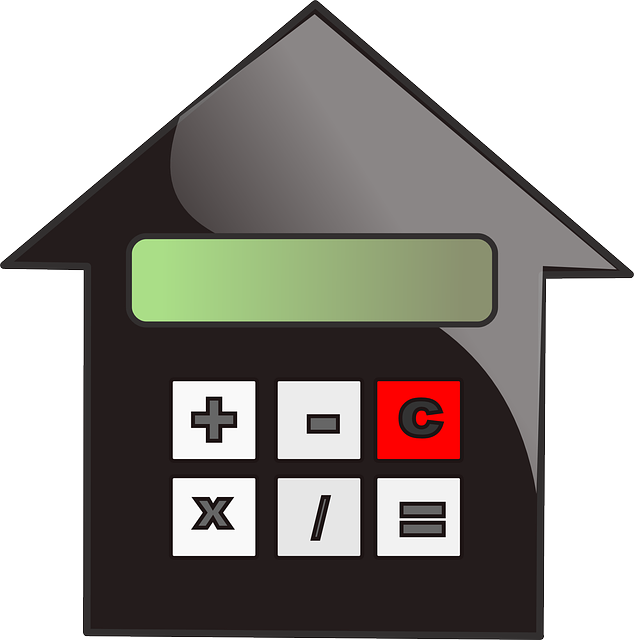July 7th, 2014.
Your Comprehensive Guide to Commercial Mortgages
What are commercial mortgages and which one will I need? What makes them different to a regular mortgage? How do you secure a commercial mortgage and what information will the lender require?

These are just a few of the questions that you may be mulling over if you’re about to buy your first business property.
We’ve compiled a comprehensive guide to commercial lending to bring you up to speed:
What are commercial mortgages?
A commercial mortgage is a loan that’s secured against a property that’s not your place of residence. They are primarily used for two reasons:
• As a means of buying business premises.
• Funding further investment against an existing asset
Businesses and individual investors usually opt for a commercial mortgage when they need to raise significant funds. Business loans are usually used for funding up to £25,000, after which commercial properties are used as security against a loan.

How do commercial mortgages differ from residential mortgages?
In general, commercial and residential mortgages are very similar. They’re both loans that are secured against property and both will be repaid over periods of up to 25 years.
Both are a significant financial commitment and are often the easiest way to raise large amounts of capital. However, commercial mortgages vary from residential property loans in a number of ways:
• Lower loan to value (LTV) – while individuals can borrow as much as 95% of a property with a residential mortgage, LTV rates for commercial mortgages are much lower. To secure a commercial mortgage you’ll need a deposit of at least 25%.
• More information required – residential lenders require relatively small amounts of personal income information to process mortgages. However, commercial financiers will want to see years of a company’s accounts and its owners’ financial details before lending money.
• Less regulation – residential mortgages are regulated by the Financial Conduct Authority, but commercial mortgages aren’t under the FCA’s jurisdiction. That means that rates are calculated differently in every case.
• Higher rates – because there is more competition in residential lending, rates are more expensive with commercial mortgages.
• More flexibility – residential rates are relatively inflexible compared to commercial deals, which can fluctuate significantly depending on a business’ location, size, age, accounts and much more.
Read More: How do commercial mortgages work?
Commercial mortgage rates
Most commercial mortgages are issued with a variable interest rate, although some are able to be secured with a fixed rate for a set number of years. Usually, variable rates will be set as a ‘tracker’ percentage over a base rate or LIBOR.

What lenders consider when providing commercial mortgages
In order to obtain the most competitive interest rates from your commercial mortgage, you need to ensure your business is as secure as possible.
Put simply, a lender is looking for the safest investment. The more you can eradicate risk from your investment, the lower rates you’ll enjoy.
The principle way that you can lower the risk to a lender is by offering a more significant deposit.
However, there are other ways to bring rates down. Here are some of the things that lenders examine:
• Audited profit and loss accounts for at least two years
• Profit and loss forecasts for at least the next 3 years
• The credit status of key stakeholders
• Any personal investments that are involved in the business
• A business plan that details how the loan will be repaid
The types of commercial mortgages
There are a variety of commercial mortgage types available; these includ:
Owner occupied commercial mortgages
Perhaps the most common form of commercial mortgage, this is used by businesses who seek to own their own commercial premises.
Owner occupied commercial mortgages can cover:
• Shops and retail spaces
• Offices
• Industrial areas
Find out more about owner occupier commercial mortgages.
Investment commercial mortgages
While owner occupied commercial mortgages offer a means for businesses to own the property in which they’re working, investment commercial mortgages are used by individual investors to buy a property before renting it out to make a profit.
Investment commercial mortgages are perfect for buying and letting:
• Single-resident properties
• Industrial areas
• Offices
• Retail areas
Find out more about commercial investment mortgages.
HMO mortgages
Homes in Multiple Occupation (HMO) mortgages are used to purchase buy-to-let properties that have a number of different occupants. HMO mortgages can be used for:
• Converted houses
• Blocks of flats
• Large student accommodation
Although buy-to-let properties with several occupants can be lucrative in specific areas, it does represent a slightly riskier investment with higher tenant turnover rates. Therefore, it’s often harder to secure competitive rates.
Working with a specialist HMO commercial mortgage broker is recommended.
Find out more about HMO mortgages.
How to find the best deal on a commercial mortgage
It is possible to find competitive rates using comparison websites and conducting your own research. However, because the costs of commercial mortgages vary depending on various factors, it’s best to talk through your application with a trusted broker.
How a commercial mortgage broker can help you find the best deal
With links to financiers and an understanding of the often complicated market,a commercial mortgage broker will often be able to save you lots of money by creating an application that’s completely tailored to your company’s needs.
They will be able to:
• Apply on your behalf to the most relevant lenders
• Use links to lenders to obtain more competitive rates
• Advise you on the information that’s necessary to get the best deals
• Eradicate mistakes in the application process
• Highlight other investment opportunities
• Offer discounts over multiple applications





